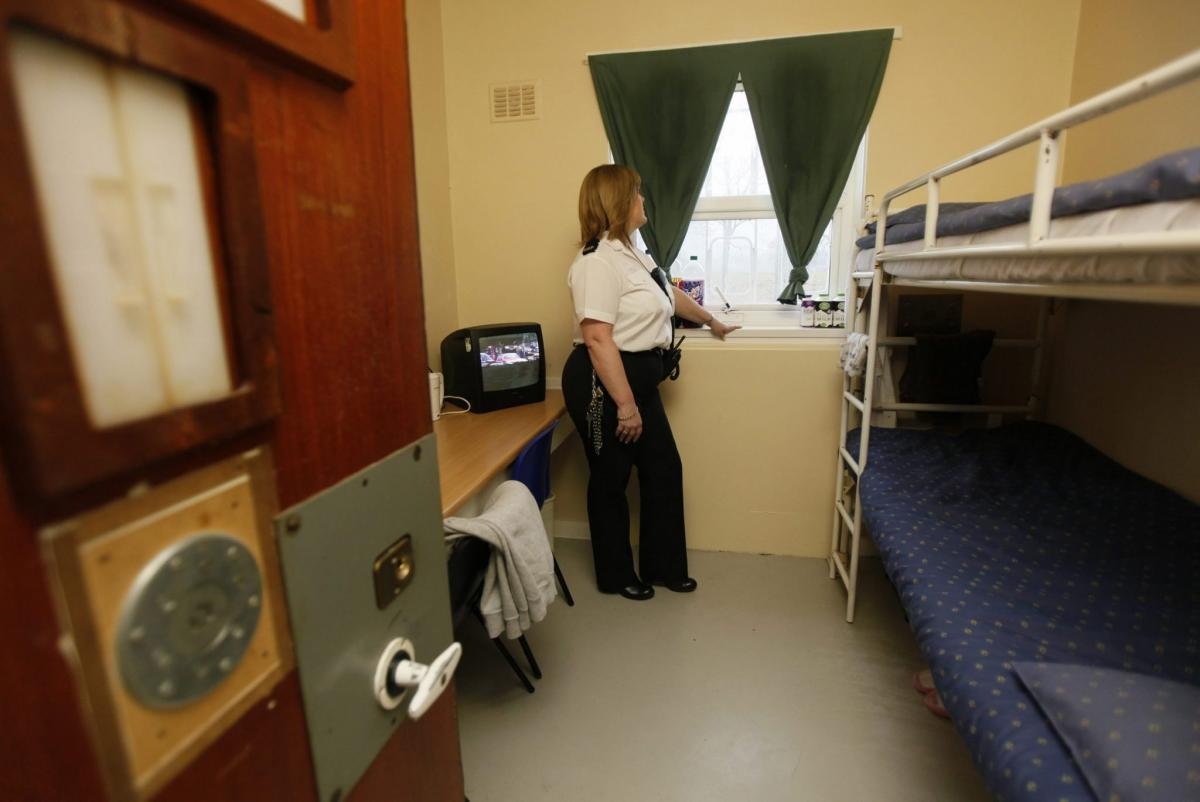MARK HIRST’S CLAIM OF MALICIOUS PROSECUTION
Last week my firm sent the following letter to the Lord Advocate, Dorothy Bain, QC: “We act for Mr Mark Hirst. Please treat this letter as intimation of a claim by him against your staff. “Mr Hirst was prosecuted for an offence under section 38(1) of the Criminal Justice and Licensing (Scotland) Act 2010 followingContinue reading "MARK HIRST’S CLAIM OF MALICIOUS PROSECUTION"
Last week my firm sent the following letter to the Lord Advocate, Dorothy Bain, QC:
“We act for Mr Mark Hirst. Please treat this letter as intimation of a claim by him against your staff.
“Mr Hirst was prosecuted for an offence under section 38(1) of the Criminal Justice and Licensing (Scotland) Act 2010 following comments which he made upon the acquittal of former First Minister Mr Alex Salmond. On 07 January 2021 the charges against Mr Hirst were found to be irrelevant, and a no case to answer submission was upheld.
“It is clear that there never was any basis for him being prosecuted, and the prosecution against him lacked reasonable and probable cause both objectively and subjectively. We also maintain that the prosecution was brought maliciously for the following reasons.
“First, it is clear and obvious that there was no reasonable or probable cause. This of itself is instructive in proving malice.
“Second, a warrant was obtained against our client when the primary evidence was plainly available. The warrant application failed to specify the threats that were being made, and was fundamentally misleading to the court. It was disproportionate to obtain a warrant and the application was not framed in a proper manner. It made false allegations about threats being made, which were established to be untrue.
“We are of course aware of the terms of section 170 of the Criminal Procedure (Scotland) Act 1995 which bears to provide immunity from suit for prosecutors when no imprisonment of the accused was imposed. However, having consulted with Senior Counsel, we consider that that provision is incompatible with Article 6 of the European Convention in that it fails to provide a remedy when a wrong is committed.
“Accordingly, our client’s instructions are that we are to place you on notice that we intend challenging the compatibility of section 170 should you fail to admit liability and offer fair compensation.
“Finally, we wish to make clear that this prosecution appears to have been politically motivated. Mr Hirst was, plainly, a supporter of Mr Salmond. We shall of course investigate whether Rape Crisis Scotland were encouraged to make a complaint for political motives, and indeed whether the complainers in the Salmond trial were similarly encouraged to do so.
“We enclose a copy of a writ that we shall be sending to the Chief Constable which is self explanatory. But prior to service, we would reiterate our demand that you admit liability, and confirm that compensation will be paid to our client, failing which we intend altering the writ to include the Lord Advocate as a second defender.
“Please respond to this letter within 21 days.”
I know that many readers of this blog are interested in Mark’s case and I hope it will be a useful service to you — particularly those of you who are prospective victims of the Crown Prosecution and Procurator Fiscal Service (COPFS), and who are contemplating similar action – for me to unpack the contents of this letter a little.
No reasonable or probable cause
Until very recently, it was thought that the Scottish Lord Advocate and COPFS were immune from being sued for malicious prosecution. This was contrary to the position in England, where it was well established that such action was competent.
Partly because of this belief in absolute immunity, and partly because of the extraordinary degree of political protection which they enjoy, COPFS have, for many years now, been a law wholly unto themselves in Scotland, accountable for all practical purposes to no-one.
And so it may have continued had not COPFS made a major miscalculation. They picked for once on victims who had both the resources and the resolve to fight back, namely the liquidators of the former Rangers FC. When the cases against them ended in utter humiliation for the police and Crown, these men sued for malicious prosecution, and a bench of five judges ruled that COPFS, like everyone else in the land, should at last be held accountable for their wrongdoing.
Subsequent decisions in related proceedings have clarified what will be required for such actions to succeed. The first requirement is that COPFS must have proceeded without “reasonable or probable cause”.
There is both a subjective and an objective element to this.
In a very recent case involving one of the Rangers liquidators, the judge said this of the objective element:
“Where, as here, the charges were dismissed as irrelevant, it seems to me that it will normally be difficult to argue that reasonable and probable cause existed from an objective standpoint. A decision that a charge is irrelevant is a decision that even if the Crown were to prove all of the facts narrated in the indictment, the essentials of the criminal charge are not present. As a general rule, it can hardly be said, on an objective assessment, that there is reasonable and probable cause for initiating and continuing proceedings if a conviction cannot result because the circumstances averred do not, as a matter of law, amount to commission of the offence charged.”
As our letter to the Lord Advocate sets out, these were exactly the circumstances of Mark’s case. The sheriff made quite clear in dismissing the case that all of the facts brought before the court by COPFS did not constitute any crime known to the law of Scotland.
Any such crime existed only in the minds of Mark’s powerful accusers, and of their mouthpiece Rape Crisis Scotland, and had no business at all in entering the minds of the police or COPFS.
So much for the objective element.
The subjective element can be boiled down to this:
Did the then Lord Advocate and his COPFS staff have a reasonable basis for belief that they had reasonable and probable cause to proceed against Mark even although, objectively, they didn’t? (And yes, I know it sounds ridiculous, but welcome to the world of the law and lawyers.)
I can think of only one argument the Crown can make here, namely that the then Lord Advocate and his staff at COPFS had an understanding of the criminal law of Scotland so far below the level of the average first year law student that they genuinely believed that Mark’s political comments on a matter of public interest were a crime.
I wish them good luck in making that argument.
So much, then, for the subjective element.
Malice
As our letter suggests, “malice” in this context has a specific legal meaning which bears some relation to its meaning in ordinary usage but is quite far from being the same. In practice, what it means is that some further evidence of bad faith beyond the complete lack of justification for a prosecution should usually be present for “malice” in the legal sense to be established.
In a case like Mark’s, as in the Rangers cases, it’s likely that only a very little more need be shown and, as our letter again indicates, there is in fact a ton more to be had. Here is a paragraph from the writ we’ll be serving on the Chief Constable of Police Scotland, as set out in our letter:
“Further, the bringing of the proceedings by the police amounted to malicious prosecution of the pursuer without that reasonable or probable cause. The police obtained the warrant to search the pursuer’s home on the basis that it appeared that the pursuer had committed an offence. He had not. The police did not produce any information to the Sheriff which would have permitted scrutiny of the application as, had that been done, it would have been obvious that no offence had been committed. It was in any event unnecessary for a warrant to be obtained and it was disproportionate to seek one. As averred above, the police had obtained a copy of the postings in any event. The obtaining of the warrant in such circumstances was oppressive, an abuse of power and unnecessary and indicative of malice.”
In short, we’ll seek to establish that the warrant to search Mark’s home, itself unnecessary in any case, was obtained by the police and COPFS on fictitious grounds. On the basis of that warrant, the police and COPFS, knowing full well what they were doing, seized items which were part of the tools of Mark’s trade as a journalist, thereby depriving him of tools by which he might make his living.
This is far from the only ground on which we’ll seek to demonstrate “malice” – see, for example, my comments below about Rape Crisis Scotland – so suffice it to say that in our submission there will be more than enough COPFS “malice” in what was done to Mark to meet the legal requirement many times over.
Section 170 of the Criminal Procedure (Scotland) Act 1995
The relevant part of this provision is in these terms:
“No judge, clerk of court or prosecutor in the public interest shall be found liable by any court in damages for or in respect of any proceedings taken, act done, or judgment, decree or sentence pronounced in any summary proceedings under this Act, unless … the person suing has suffered imprisonment in consequence thereof …”
This was a rather extraordinary provision even before the Rangers cases, when it was still thought that the Lord Advocate and COPFS had absolute immunity across the board from civil actions for malicious prosecution. In light of the law as it now stands, the provision is, in my opinion, completely untenable and will inevitably be struck down by Article 6.
There is no reason in law or in common sense why COPFS should be liable in damages for maliciously prosecuting someone who goes to jail as a result but not someone who is, rightly, acquitted of the charges against them. Nor is there any reason why people tried before a jury (in “solemn proceedings”) should be treated differently from those tried by a judge alone (in “summary proceedings”).
On the grounds summarised in our letter, this is a provision which must be challenged, and will be challenged, in Mark’s action. It is a challenge which, if successful, will have obvious and far-reaching consequences.
Senior Counsel
I’ll admit that it goes against the grain for me to instruct senior counsel in any case as I take great pride in arguing all of my cases myself. I’ve been delighted, though, to make an exception for Andrew Smith QC, whose services we’re privileged to have secured for Mark’s case.
Along with a couple of other top QCs, Andrew has been, and continues to be, in the forefront of the successful challenge on COPFS immunity that has made possible the action we’re now taking for Mark. He knows this novel and developing area of Scots law with a thoroughness and grasp of detail that is unrivalled at the Bar.
That in itself is a fact that will in no way be lost on our opponents.
I know that Andrew is relishing what lies ahead and in particular is relishing our challenge to section 170, which will be of obvious significance to all of the activists who have been and are being prosecuted on political grounds by COPFS at the behest of the Scottish Government.
Frankly, there’s no-one I’d rather have on board.
Political Motives: Rape Crisis Scotland
The following paragraph is taken from the writ prepared by Andrew and which we’ll be serving on the Chief Constable of Police Scotland in due course, as set out in our letter above.
“On 31 March 2020, STV News posted an article online quoting Sandy Brindley of Rape Crisis Scotland (a Scottish Government funded pressure group) stating that ‘the comments [of the pursuer] are sinister, threatening and to identify the women would be illegal.’ On 02 April 2020, the Daily Record, a tabloid newspaper distributed mostly in central Scotland, alleged that the complainers in the case against Alex Salmond had made a complaint to the police about the pursuer’s post. On 02 April 2020, the pursuer contacted the police to advise that he had heard that the police had received a complaint and he offered to cooperate.”
Remember when reading this that Mark’s accusers – which is to say, Alex Salmond’s accusers – include in their number some of the most powerful people in Scotland.
Remember that Alex Salmond was nonetheless acquitted of all of the charges brought by these powerful accusers by a jury of his peers and on the clearest possible evidence that he was innocent.
And remember what some of the charges brought by these powerful accusers in the High Court of Justiciary – the highest criminal court in the land, where only the most serious crimes are supposed to be prosecuted – actually were:
Touching someone’s leg with his hands over her clothing in a car (witnessed by none of the other persons present in the car, including the person’s spouse);
Touching someone’s arms and hips with his hands over her clothing and congratulating her that she had lost weight in a nightclub in the presence of numerous other people (but again, it seems, witnessed by no-one else present);
Touching someone’s buttock with his hand over her clothing during a public photo-shoot (again, witnessed by none of the numerous other people present at the event).
Think of any ordinary person – or Rape Crisis Scotland itself, for that matter – trying to persuade the police even to investigate such allegations, let alone persuading COPFS to prosecute them in the highest court in the land, and you’ll get an idea of just how powerful these accusers are, and just how much of a mouthpiece for them Rape Crisis Scotland, the police and COPFS have become.
Hopefully, you’ll get an idea too of why this is an area which we intend to pursue in detail with the court by way of establishing yet more of the extra elements of bad faith which constitute the clearest possible “malice”.
The Scottish Government’s patronage and control of organisations like Rape Crisis Scotland – and the prominent presence in such organisations of Sturgeon’s personal clique of zealots – goes way wider than Mark’s case, as everyone who has been following their disgraceful attacks on the rights of Scottish women will be all too well aware.
21 days
The period of 21 days for the Lord Advocate to respond to our letter runs out on 12 August 2021.
I’ll let you know what happens next.
What's Your Reaction?











































